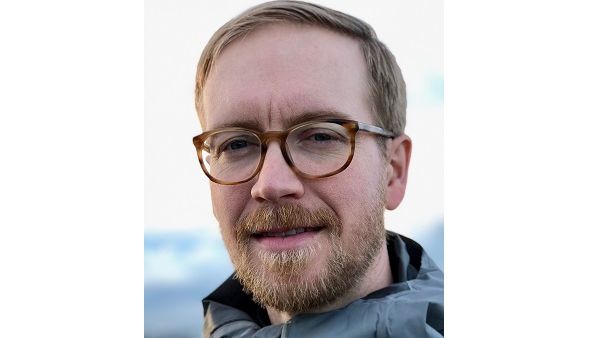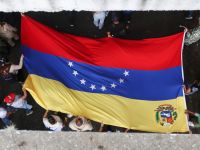GU-Q Faculty’s New Book Explains How China Managed to Maintain Unity Despite Its Diverse Ethnic and Religious Minorities

Two centuries after the Qing dynasty designed a new ritual to tighten its grip over Tibet, Georgetown University in Qatar (GU-Q) professor of Asian history, Max Oidtmann,takes a fresh look at how it all started, and why China revived this ritual two hundred years later. In his new book Forging the Golden Urn: The Qing Empire and the Politics of Reincarnation in Tibet, Dr. Oidtmann presents historic events explaining reasons behind the invention of the golden urn lottery by the Qianlong emperor in 1792 and evaluates the Qing state’s ability to alter Tibetan religious and political traditions. He then contrasts the efforts of the Chinese imperial state to manage religious affairs with the policies of the People’s Republic of China.
The “Golden Urn” was a small gold-plated copper pot forged imitating the shape and decoration of a Tibetan ritual vessel, it was intended for use in identifying the reincarnations of important lamas by putting the names of candidates on lots in the Golden Urn and then drawing one out.
“In my research, I found that one of the main reasons the Qianlong emperor invented the Golden Urn ritual procedure was to shore up people’s faith in the authenticity of reincarnations. The Qing government and some Tibetan elites were worried that a lot of corruption had seeped into top levels of leadership among Tibetan Buddhists. And because reincarnate monks were also political leaders, conflicts about their authenticity might undermine the political stability of many parts of the Chinese empire,” explains Oidtmann. “The modern Chinese state has reinstituted this procedure for different reasons: It wants to use the ritual to maintain control over the future Dalai Lama and other prominent Tibetan leaders. The Communist Party is more concerned about suppressing Tibetan nationalism than finding real reincarnations.” The book is of broad interest, however, because it is about a question that all modern societies face: How should governments manage religion, if at all?
Oidtmann says that, “The Communist Party of China, has for much of the past thirty years done quite a decent job of managing a very diverse society and preventing large-scale violence between religious and ethnic groups. It has, until recently, promoted a Chinese identity that is inclusive. In the last year or two, however, the PRC has pushed for greater assimilation of minorities and the Sinification of religions such as Islam and Christianity. It will be interesting to see what happens.”
The 352- page book Forging the Golden Urn: The Qing Empire and the Politics of Reincarnation in Tibet, is a useful and entertaining exploration of Chinese history, published by Columbia University Press.
Background Information
Georgetown University in Qatar
Established in 1789 in Washington, DC, Georgetown University is one of the world’s leading academic and research institutions. Georgetown University in Qatar (GU-Q), founded in 2005 in partnership with Qatar Foundation, seeks to build upon the world-class reputation of the university through education, research, and service. Inspired by the university’s mission of promoting intellectual, ethical, and spiritual understanding, GU-Q aims to advance knowledge and provide students and the community with a holistic educational experience that produces global citizens committed to the service of humankind.
Located in Doha’s Education City, GU-Q offers the same internationally recognized Bachelor of Science in Foreign Service degree as Georgetown’s Capitol Campus in Washington, DC. This unique, interdisciplinary program prepares students to tackle the most important and pressing global issues by helping them develop critical thinking, analytic, and communication skills within an international context. GU-Q alumni work in leading local and international organizations across industries ranging from finance to energy, education, and media. The Qatar campus also serves as a residency and delivery location for the Executive Master’s in Emergency and Disaster Management along with the Executive Master’s in Leadership.






